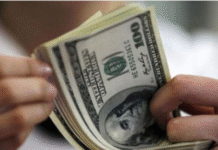
Bangladesh’s trade deficit hit a historic high of $30.81 billion in the first 11 months of the 2021-22 fiscal year, intensifying the pressure on the macroeconomic zone.
The country has been facing the higher trade deficit in recent months due to the escalation of imports against lower exports.
Trade deficit in the first 11 months of FY21 stood at $20.70 billion, according to data from the Bangladesh Bank.
This has already created a tremendous pressure on the foreign exchange reserves, prompting a foreign exchange crisis in the banking sector.
Between July and May last fiscal year, imports increased to $75.40 billion, up 39 per cent year-on-year when exports grew 33 per cent to $44.58 billion.
The higher trade deficit also registered a record current account deficit of $17.23 billion in the first 11 months of FY22 in contrast to a deficit of $2.78 billion a year ago.
These also squeezed the foreign exchange reserves, which stood at $41.86 billion as of June 29, down $46.08 billion from a year ago.
The majority of the banks are now facing inadequate US dollars due to the high imports, which has consequently left an adverse impact on the exchange rate of the taka against the dollar.
The exchange rate stood at Tk 93.45 each dollar yesterday compared to Tk 84.80 a year before.










